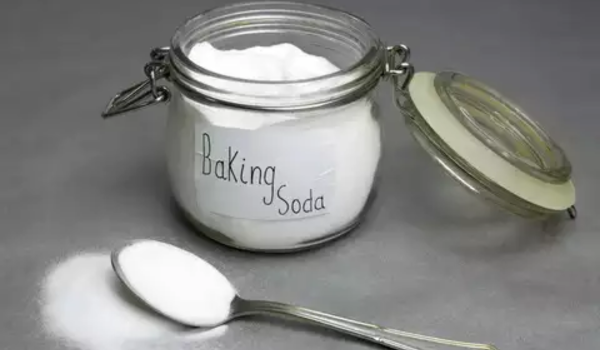Baking Soda Trick for ED: Myth or Effective Natural Remedy?
The Baking Soda Trick for Erectile Dysfunction: A Comprehensive Analysis

Erectile dysfunction (ED) is a prevalent condition affecting millions of men worldwide. As individuals seek alternative treatments, various home remedies have surfaced, one of the most discussed being the “baking soda trick.”
This method involves consuming a mixture of baking soda and water, with proponents claiming it can alleviate ED symptoms. But does this home remedy hold any scientific merit, or is it merely a passing trend?
In this detailed analysis, we will explore the origins of this remedy, examine the scientific evidence, discuss potential risks, and consider safer, evidence-based alternatives for managing ED.
Understanding Erectile Dysfunction
Before delving into the specifics of the baking soda remedy, it’s essential to comprehend what ED entails. Erectile dysfunction is the inability to achieve or maintain an erection sufficient for satisfactory sexual performance. It can result from various factors, including:
- Physical causes: Cardiovascular diseases, diabetes, obesity, and hormonal imbalances.
- Psychological causes: Stress, anxiety, depression, and relationship issues.
- Lifestyle factors: Smoking, excessive alcohol consumption, and lack of physical activity.
Given the multifactorial nature of ED, treatments often require a comprehensive approach addressing both physical and psychological aspects.
What Is Erectile Dysfunction (ED)?
Erectile dysfunction, commonly referred to as ED, is a condition characterized by the persistent inability to achieve or maintain an erection firm enough for satisfactory sexual intercourse.
While it’s normal for men to occasionally experience difficulty with erections often due to stress, fatigue, or temporary factors, chronic ED occurring regularly can be a sign of underlying physical or psychological health issues that require attention.
ED can affect men of all ages but becomes increasingly common as men age. It’s important to recognize that ED is not simply a natural part of aging, but rather a medical condition that can often be treated effectively with proper diagnosis and care.
How Does an Erection Work?
Erectile dysfunction (ED) is the persistent inability to achieve or maintain an erection sufficient for satisfactory sexual activity.
While occasional difficulties with erections are common and often harmless, chronic ED can signal underlying health issues that may require medical evaluation.
The process of achieving an erection is complex, involving the brain, nerves, hormones, muscles, and blood vessels working in harmony.
Sexual arousal triggers the brain to send signals that relax the smooth muscles within the corpora cavernosa, two sponge-like chambers in the penis allowing them to fill with blood.
As these chambers engorge, the veins constrict to trap the blood inside, resulting in a firm and sustained erection.
Any disruption in this delicate system, whether due to cardiovascular problems, nerve damage, hormonal imbalances, or psychological factors, can interfere with the ability to maintain an erection.
The Rise of the Baking Soda Trend
The “baking soda trick” has gained traction on social media platforms, where users claim that consuming a mixture of baking soda and water can improve blood flow and alleviate ED symptoms.
The proposed mechanism suggests that baking soda’s alkalizing properties may help neutralize stomach acid, leading to improved circulation and enhanced erectile function. However, these claims lack robust scientific backing.
Scientific Examination of Baking Soda and ED
Baking soda, or sodium bicarbonate, is an alkaline compound commonly used in baking and as an antacid.
Some proponents argue that its alkalizing effect can balance the body’s pH levels, thereby improving blood flow and erectile function. However, scientific research does not support these assertions.
A study published in the Journal of Urology explored the effects of sodium bicarbonate on penile blood flow. The results indicated no significant improvement in erectile function among participants who consumed baking soda.
Additionally, the study highlighted potential risks associated with excessive sodium intake, including electrolyte imbalances and cardiovascular complications.
Furthermore, a review in The Journal of Sexual Medicine emphasized that ED is primarily linked to vascular health and that interventions targeting blood vessel function, rather than systemic alkalization, are more effective.
Potential Risks of Using Baking Soda for ED
While baking soda is generally safe for occasional use, excessive consumption can lead to several health issues:
- Electrolyte Imbalance: High sodium intake can disrupt the balance of electrolytes, leading to symptoms such as muscle weakness, irregular heartbeats, and seizures.
- Metabolic Alkalosis: Overuse can cause the body’s pH to become too alkaline, resulting in nausea, vomiting, and confusion.
- Gastrointestinal Distress: Excessive intake may lead to bloating, gas, and stomach discomfort.
- Medication Interactions: Baking soda can interfere with certain medications, especially those for heart conditions or hypertension.
It’s crucial to consult a healthcare professional before considering baking soda as a remedy for ED.

Expert Opinions on the Baking Soda Trick
Medical professionals emphasize that while baking soda is a household staple with various uses, it’s not a proven treatment for ED. Relying on such unverified remedies can delay proper diagnosis and treatment.
Experts recommend evidence-based approaches to managing ED:
- Consult a Healthcare Provider: A doctor can determine the underlying cause of ED and recommend appropriate treatments.
- Healthy Lifestyle Choices: Regular exercise, a balanced diet, and stress management can improve erectile function.
- Medications: FDA-approved medications like sildenafil (Viagra) have been shown to be effective for many men.
- Therapy: Counseling can address psychological factors contributing to ED.
Proven Treatments for Erectile Dysfunction
Unlike unproven “tricks,” there are many effective, safe treatments for ED:
- Medications: PDE5 inhibitors such as sildenafil (Viagra), tadalafil (Cialis), and vardenafil (Levitra) work by relaxing blood vessels and increasing blood flow to the penis, helping achieve and maintain an erection.
- Hormone Therapy: Testosterone replacement therapy can be helpful for men with low testosterone levels, which may contribute to reduced libido and erectile difficulties.
- Lifestyle Changes: Improving overall health can have a significant impact on erectile function. This includes weight loss, quitting smoking, limiting alcohol, regular exercise, and following a heart-healthy diet rich in fruits, vegetables, and whole grains to support vascular health.
- Counseling and Therapy: Since psychological factors such as stress, anxiety, and depression often contribute to ED, counseling, cognitive-behavioral therapy, or couples therapy can address these underlying issues and improve sexual function.
- Medical Devices: Vacuum erection devices create a vacuum around the penis, drawing blood into the corpora cavernosa to induce an erection. Penile implants, a surgical option, involve placing devices inside the penis to allow for erections on demand.

Frequently Asked Questions
Does baking soda help with ED?
- No scientific evidence supports baking soda as an effective treatment for erectile dysfunction. Claims about its benefits are largely anecdotal and not backed by clinical research.
Is baking soda safe to consume?
- Small amounts of baking soda are generally safe for occasional use, such as for heartburn relief. However, frequent or large doses can cause health problems, including metabolic alkalosis, electrolyte imbalance, and increased blood pressure.
When should I see a doctor?
- Persistent difficulty achieving or maintaining an erection warrants a medical evaluation. ED can be an early warning sign of cardiovascular disease, diabetes, or other health conditions.
Can lifestyle changes really improve ED?
- Yes. Improving diet, exercising regularly, quitting smoking, reducing alcohol intake, and managing stress can significantly improve erectile function.
Are there natural remedies that actually work for ED?
- While some supplements and herbs are marketed for ED, most lack solid scientific backing. It’s best to consult a healthcare provider before trying any alternative treatments.
What are the most effective medical treatments for ED?
- PDE5 inhibitors like Viagra and Cialis are highly effective for many men. Other options include hormone therapy, psychological counseling, vacuum devices, and surgery.
Can psychological factors cause ED?
- Absolutely. Stress, anxiety, depression, and relationship issues can all contribute to erectile dysfunction and should be addressed alongside physical treatments.
Conclusion
While the idea of using baking soda as a quick fix for erectile dysfunction might seem appealing, there is no scientific evidence to support its effectiveness.
The body’s complex mechanisms behind erections cannot be significantly influenced by simple home remedies like baking soda, and relying on such unproven tricks may delay proper diagnosis and treatment.
Moreover, excessive consumption of baking soda carries potential health risks that should not be overlooked.
Erectile dysfunction is often a sign of underlying health issues, including cardiovascular problems, hormonal imbalances, or psychological factors, all of which require comprehensive evaluation by a healthcare professional.
Fortunately, there are many safe and effective treatments available from medications and hormone therapy to lifestyle changes and counseling that can help restore sexual function and improve quality of life.
If you or a loved one is experiencing persistent erectile difficulties, the best step is to seek medical advice rather than relying on myths or home remedies.
With the right approach, ED can be managed successfully, allowing men to regain confidence and enjoy fulfilling intimate relationships.
.